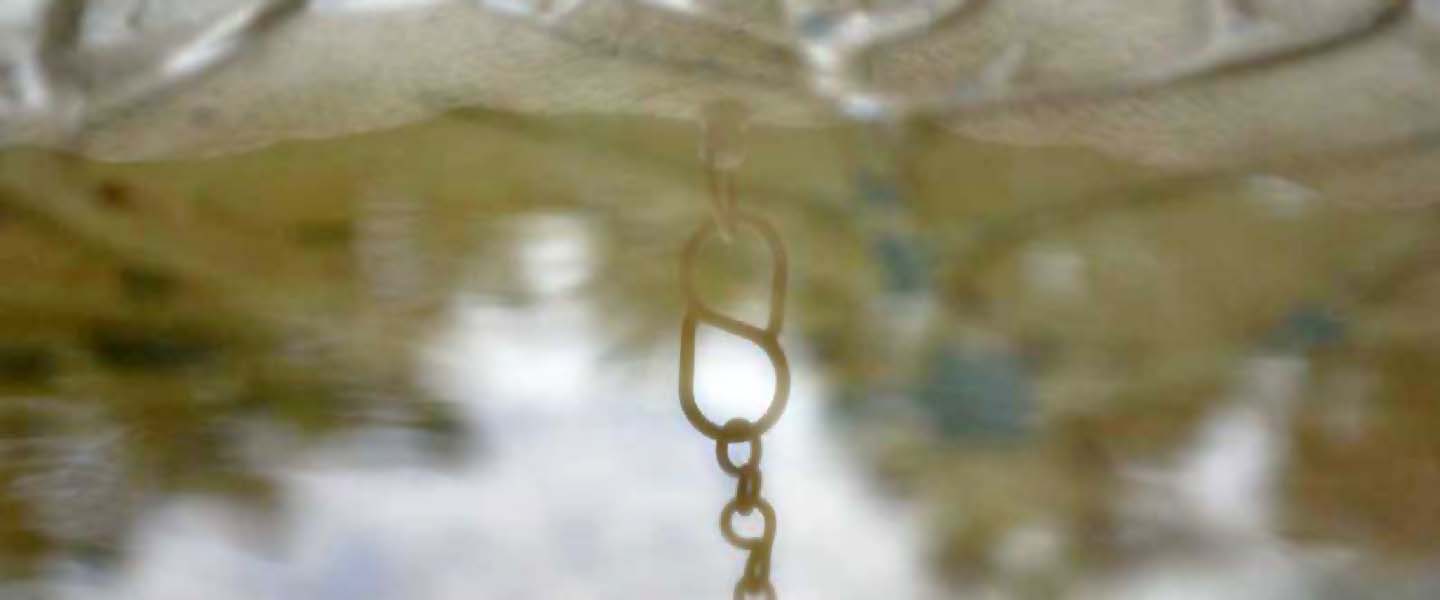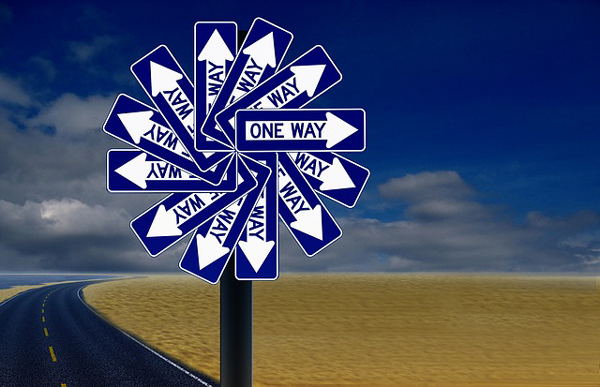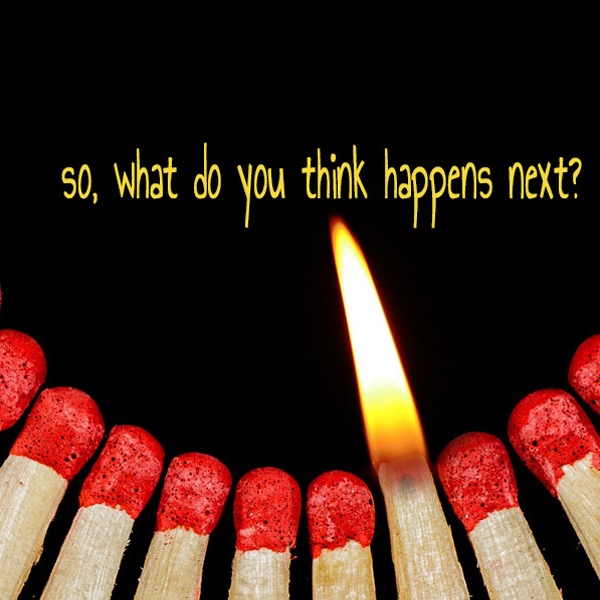The Garden: Emerging From The Soil


My practice is called Mustard Seed Journeys because of the significance of a tiny seed of faith in any life in which it’s planted. Faith, when lived out loud, can spread so quickly and deeply, it becomes a force multiplier in any human effort.
A mustard seed is a tiny piece of possibility the bible discusses as a benign grain which can, with very little effort, invade an entire garden, until everything else withers and dies. We are encouraged to have faith the size of a mustard seed because properly planted and cultivated, this faith can move mountains, change lives, and impact generations of the future. In some places in the world, it is unlawful to bring a mustard seed into a region because it is seen as a “weed” and one which is likely to become so invasive all other “desirable” plants are endangered.
Many find that kind of faith enviable. This suggests anything worth growing in a life is, by necessity, influenced by the spiritual framework under which it grows. Whether we acknowledge it or not, what we believe about ourselves and the existential soil nurturing our roots, provides the garden we inhabit during our living years. There are things growing in our “understory” that may be taking over, slowly killing the “canopy.” In therapy, we examine both sides carefully.
A seed is an instrument by which the Master Gardener brings forth diversity, creativity, color, and harmony between plant and animal life which cannot be replicated any other way. When we present our lives, our faith, and our willingness to serve and to love others, God takes that seed and creates amazing and wondrous landscapes for living. In essence, we take what He gives us—time, talent, & treasure—and we give it back to Him, by sharing it with others.
Truthfully, we cannot know what impact our faith, or the prayer-seeds of those who came before us, will have on the destiny of the world we inhabit. Our faithful and flawed, willingness is all God needs to bring His plan to fruition. Compost happens, but if it is tilled into the soil of our lives and celebrated for the regenerative capabilities it possesses, amazing fruits emerge from the decomposition God employs. He can transform death into life and make the impossible entirely possible. All it takes is a willingness to open our eyes to His way of looking at ourselves and the world we inhabit. Healing and Freedom are within our reach when we are resting in the palms of His hands.

-
The kingdom of heaven is like to a grain of mustard seed, which a man took, and sowed in his field, which indeed is the least of all seeds. But when it is grown, it is the greatest among herbs, and becometh a tree, so that the birds of the air come and lodge in the branches thereof. Matthew 13:31-32
-
He replied, “Because you have so little faith. Truly I tell you, if you have faith as small as a mustard seed, you can say to this mountain, ‘Move from here to there,’ and it will move. Nothing will be impossible for you.” Matthew 17:19-21 (in Context)
-
He replied, “If you have faith as small as a mustard seed, you can say to this mulberry tree, ‘Be uprooted and planted in the sea,’ and it will obey you. Luke 17:5-7 (in Context)
- It is like a mustard seed, which a man took and planted in his garden. It grew and became a tree, and the birds perched in its branches.” Luke 13:18-20 (in Context)

Our lives can be viewed as soil; we are planted when we are born in a setting not of our choice. As we grow, we observe the habits of the “gardeners” around us—our family, mostly our parents. We learn from them what is important, what is valued, and what is desirable or dangerous for our well-being. We learn about “us and them”, biases, assumptions, and opinions that carry the weight of “truth.” The choices our caregivers make for their lives, even before we are born, impact our own lives in countless ways that, until we begin to learn about ourselves and the world around us, again, we accept as “truth.”
However, if we are wise (though often we are not), we will learn to think for ourselves, to decide whether what we have been told/taught are actually “truth”, and we become responsible for our own choices. Critical thinking is a difficult habit to develop, but necessary for growth of relationships with self and others. It must be valued, modeled and reinforced in some context for it grow and prosper and once we reach the age of reason, sometimes, it’s “on us” to value self-governance enough to pursue and express it.
This is the scary part; we are truthfully more in control over our lives than we have been taught to believe.
While we have no control at all over certain events or aspects of our lives, we have absolute control over how we respond to those events or aspects. Things do happen to or around us, but we choose how to respond to those things. Doing things differently than they have always been done even when no one living can tell us why, is a relational risk many are too afraid to take. As a result, things continue to be done for the wrong reasons with harmful results because no one wishes to take the first steps away from the pack. It’s not always what we do that causes the strife, it’s the motivations—the WHY we do what we do, because it reflects the conditions of our hearts, something God cares very much about.
There is a difference between the person who continues to do the same things as everyone he knows because that’s the simplest thing to do, and the person who learns to think for himself about whether choices are wise ones to make and takes the risk to do it differently, hoping for a different result. That difference is where the “locus” or place of their control resides: internally or externally.
Internal locus of control belongs to the one who says, “I may not like the situation I am in right now, but I can make choices which will lead me to a different, perhaps better, place than I am today. Only I have the power to change my destiny by associating with people who are more likely to help me out of the hole I am in now.” It is without a doubt the most difficult belief structure to build if surrounded by those who want him to stay in the hole with them: family, friends, or others who benefit from the status quo (the way things are.)
External locus of control belongs to the one who allows others to make decisions for him. He believes there is “no way out of this hole” and “it’s someone else’s fault I am here in the first place.” He continues to associate with others who reinforce this mindset because they are scared he will break out of that lifestyle and leave them behind. This is the easiest belief structure to build because it requires no effort at all. But it is NOT the belief structure of ANY person who achieves any legitimate success or true freedom in this life.

In life, as in gardening, when you find yourself deep into a hole which has no purpose,
STOP DIGGING! Going around in circles is not only dizzying, but unproductive unless you are a dog about to take a nap!
The more you dig, the deeper you go. The deeper you go, the more difficult it will be to get yourself out, even with help from outside the hole (if you ask for help.) Being pulled into a hole is much easier than climbing out of it. Until you are out of your own, you cannot help others out of theirs.
Learning to think for yourself and to make better choices, even if they take you away from everything you have ever known or believed, is the healthiest thing anyone can do. The best teachers are not the ones who gave you the answers, but the ones (you know, the ones you hated in school) who refused to answer your every question but taught you to use resources around you to FIND THE ANSWERS for yourself. Asking yourself who benefits from you just going along with the crowd without thinking or asking any difficult questions, will help you learn to discern who is really a friend and who is to be avoided.
The decision about whom to follow, whose judgment you will choose to accept in a stressful situation where you are in over your head, is a vital one.
In the military, oftentimes commanders or higher grade personnel make decisions which impact people’s lives. They are trained to lead those who serve under them through stressful events in which life and death are decided. Sometimes they fail and horrible consequences result. Sometimes we have no choice in who leads us, but we ALWAYS have choices about whether we go against what we KNOW is right. I believe with all my heart that we will never regret doing the right thing for the right reasons, even if we suffer because of it. Thus is the soil of life. If we obey God every time, we can safely leave the consequences of our obedience up to HIM. If we do not obey, we will bear (and share at times) the consequences—we are given chances daily to practice this principle.
Applicable gardening moment: 
Pay attention, this is an analogy for your life. (I told you I was a teacher.)
When someone sees a weed in their yard, they have options available to them.
- They can stop what they are doing immediately, dig deeply and pull the weed up by the root. If they get the entire plant and root out before it seeds, it can be composted and the problem is gone for good but becomes part of the soil again in a beneficial way.
- They can walk over it as if they don’t see it, in which case it will grow, bolt to seed, and spread. Inevitably, more will grow in the yard.
- They can attack it with a harsh chemical which will kill all life around and including the weed, leaving a dead space in the ground where nothing will grow for a given period of time. This act poisons the soil in long-lasting ways, which may not be immediately obvious. The weed is “gone” but so is any growth potential in that spot for a long time.
- They can cut the weed off at the surface of the ground which makes it look like the weed is gone, but in truth, the root will send up even stronger leaves to ensure its survival. Weeds and seeds are patient things, waiting for the next ideal opportunity to spread and grow.
Only the first of these has only positive effect but it requires immediate response and no small amount of effort. If the weed represents a child who is becoming secretive or aggressive, or a spouse who seems unhappy and is drifting away, or a financial situation which continues to deteriorate, any of the other responses to this “weed” could have serious impact on the life-soil of the family.
Over-reaction, under-reaction, or no-reaction are all options when we have potential problems in our lives. Ignoring signs of trouble may feel like the thing to do. Hoping things will get better on their own, or that kids will outgrow a “stage all kids go through”, is in itself a decision which can have disastrous effects on not only the here and now, but on the lives of all members of a family, especially those who have no real power to effect change in the family due to their age or status.
It is frequently the most helpless who are potentially hurt the most by our decisions.
It is important that we consider our choices and make the best decisions for all members of our family, even if those are the hardest choices to make for ourselves.

I believe we are never put into circumstances by “accident”, even though we may experience an unplanned event in life. I believe all circumstances are opportunities for us to learn or teach something important, and sometimes both of these occur. We are in the larger Garden of Life together. We have lessons to learn, things to grow, and weeds to pull in our own, and in the growing spaces of those around us. What we do matters. Love is contagious and Light is the nature of revealing what is true. Darkness cannot stand against it, so being a source of light essentially is equal to loving those around you.
Life is a cycle where birth and death are bookends to what comes between—our idea about the “important stuff” pales when compared to the necessity of relationship. Learning to love ourselves and others as God loves us may be the hardest of those lessons to accept. But there is joy in the living, growing, and learning every day. There is beauty in each day we live and in the day we die; it is my privilege to help others learn to find both beauty and joy in the living years, while I search for it in my own.

HIPAA COMPLIANCE
Early in 2020, as COVID distracted and confounded plans for seeking trainings, I was fortunate enough to find a very worthwhile pursuit–Compliancy Group is an organization whose goal is to help organizations under the HIPAA rules become and stay HIPAA/HITECH compliant, and to be an advocate if the organization is ever audited by the Office of Civil Rights resulting from a complaint or data breach.
After hours of audit questionnaires, consideration of who in my professional life is a Business Associate or simply someone who is around and may be exposed secondarily to client protected information, so that I may be sure to have appropriate agreements in order, signed and reviewed annually, I completed the process and received the Seal of Compliance from the Compliancy Group. It is part of my commitment to maintaining excellence in not only the front side of therapy, but also the back side, where files and data are safeguarded, to continue to engage in annual consultation with the Compliancy Group.
Read and utilize this site at your own risk.
If you or someone you know needs mental health crisis management, please contact a professional medical or mental health provider as soon as possible. The owner/author of this site intends only to offer general information and all material is subject to change without notice.
Nothing posted on this site is intended as professional guidance or therapeutic advice of any kind. If you find the material helpful, that’s its intent, but please understand your use of the site should under NO CIRCUMSTANCE be considered a professional therapeutic (or personal) relationship between the user and the author of this site. Leslie LaRo Hayes, Ph.D., LMFT, assumes no responsibility for discomfort or other loss that may result from decisions made after utilizing any part of this website.
